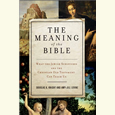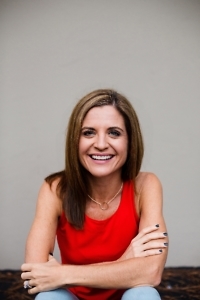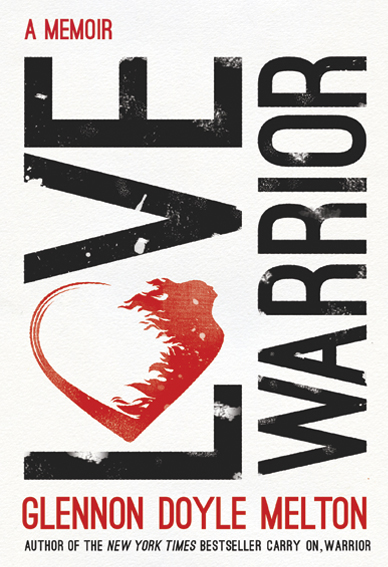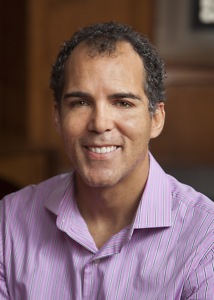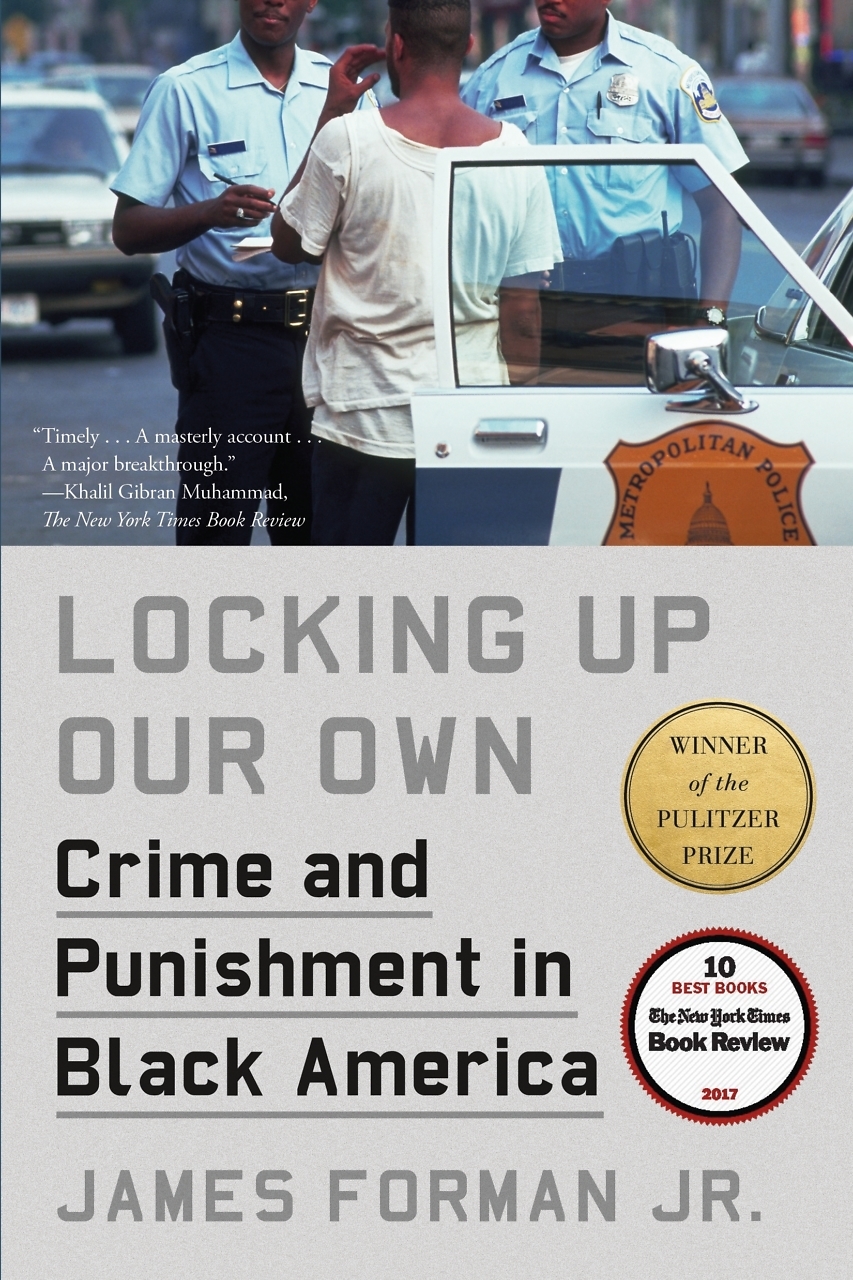Jefferson’s Shadow
Jon Meacham talks with Chapter 16 about his new biography of Thomas Jefferson and the politics of optimism that made him beloved
President John F. Kennedy is said to have greeted a group of Nobel laureates at the White House by remarking that it represented the greatest intellectual gathering in that building “since Jefferson dined alone.” Perhaps because of his remarkable range of interests and achievements, Thomas Jefferson has remained both the most enigmatic and fascinating of America’s founding generation. His achievements and contradictions are the subject of a new biography, Thomas Jefferson: The Art of Power, by Jon Meacham.
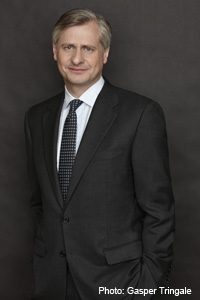 The book considers not only Jefferson’s political career but also the ways he operated in both the political and intellectual spheres of the early American republic. In recent years, several biographers have cast a more critical light on Jefferson’s career, often focusing on the disconnect between his intellectual ideals and his political behavior. While acknowledging that the third president was far from perfect, Meacham makes the case for seeing Jefferson as a pragmatist rather than a hypocrite. He was also, in Meacham’s eyes, a consensus builder by nature, perhaps most famously in the dispute over the federal assumption of state debts in 1790, when he helped broker a deal over a private dinner with his arch-nemesis, Alexander Hamilton. Over the course of his career, such flexibility allowed Jefferson to secure a series of momentous achievements for the young republic.
The book considers not only Jefferson’s political career but also the ways he operated in both the political and intellectual spheres of the early American republic. In recent years, several biographers have cast a more critical light on Jefferson’s career, often focusing on the disconnect between his intellectual ideals and his political behavior. While acknowledging that the third president was far from perfect, Meacham makes the case for seeing Jefferson as a pragmatist rather than a hypocrite. He was also, in Meacham’s eyes, a consensus builder by nature, perhaps most famously in the dispute over the federal assumption of state debts in 1790, when he helped broker a deal over a private dinner with his arch-nemesis, Alexander Hamilton. Over the course of his career, such flexibility allowed Jefferson to secure a series of momentous achievements for the young republic.
In his discussions of the more contentious moments of Jefferson’s life, Meacham offers new considerations of some while refusing to sugar-coat others. For instance, he doesn’t duck the greatest blind spot in Jefferson’s “empire of liberty”: his celebration of universal human freedoms while simultaneously keeping hundreds of human beings enslaved. Unwilling to give a man he clearly admires a pass on this point, Meacham rightly charges Jefferson with intellectual and moral dishonesty. Despite Jefferson’s assertions that he would sacrifice anything in exchange for a “practicable” plan to abolish slavery, he was in fact “not willing to sacrifice his own way of life,” according to Meacham, and tried to defend his position “by introducing the subjective standard of practicability,” which he then used to reject every plan put to him.
It is this engaging and unflinching approach to a fascinating life that has earned Thomas Jefferson: The Art of Power such critical acclaim. The New York Times praised Meacham’s “nuanced and persuasive” explanation of Jefferson’s governing philosophy and his “tough-minded account” of Jefferson’s inconsistencies on racial issues. Kirkus Reviews called the book an “outstanding biography” that “reminds us of the flesh-and-blood politician” who “masterfully bent the real world in the direction of his ideals.”
This is Meacham’s sixth book and his second presidential biography; he is also the author of American Lion: Andrew Jackson in the White House, which won the Pulitzer Prize for biography in 2009. Meacham has written books on the civil-rights movement, the Anglo-American alliance during World War II, and the role of religion in the founding of America, and has edited a collection of essays on Memphis novelist and historian Shelby Foote. During a distinguished career as a journalist, most prominently as editor of Newsweek from 2006 to 2010, Meacham has contributed to the national political discussion on all manner of major issues.
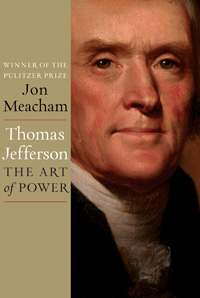 Meacham is a native of Chattanooga and a graduate of the University of the South in Sewanee, and his life has always involved a balance between his roots in Tennessee and his national career in New York and Washington D.C. Now a senior editor at Random House (where he numbers fellow Tennesseean Al Gore among the authors he edits), Meacham recently moved to Nashville.
Meacham is a native of Chattanooga and a graduate of the University of the South in Sewanee, and his life has always involved a balance between his roots in Tennessee and his national career in New York and Washington D.C. Now a senior editor at Random House (where he numbers fellow Tennesseean Al Gore among the authors he edits), Meacham recently moved to Nashville.
Meacham recently answered questions from Chapter 16 by email about his latest work and his thoughts on contemporary American politics.
Chapter 16: You grew up in Tennessee but have also spent much of your adult life in New York City. Do you feel any particular sense of being “Southern” when you are in New York, either in your own thoughts or in the way people respond to you?
Meacham: Perhaps because we’ve always kept a house in Sewanee, where I went to school, we’ve always felt as though the South is a crucial part of who we are. New York has been home for a long time, and it’s full of Southerners, who tend to find it congenial in part because New York is really a vast collection of villages, and Southerners are accustomed to village life.
Chapter 16: Until 2000, Tennessee was a swing state in presidential elections, voting for the winner all but once since 1920. It is now considered one of the reddest states in the nation. As a native Tennessean who has written a great deal about the polarized nature of contemporary party politics, how do you explain this transformation?
Meacham: The key development in American politics since the 1960s has been the rise of cultural populism, which has steadily displaced economic populism as the defining characteristic in most elections. Tennessee was late to that transformation, remaining a competitive state through the Clinton era, but is now reliably Republican. Whether demography or some kind of crisis changes that remains to be seen.
Chapter 16: Your background is in journalism and literature. When you turned to writing history, did you find professional historians reluctant to regard you as a peer?
Meacham: I have been incredibly fortunate to have been the beneficiary of generous counsel, insight, and guidance from historians across the spectrum. Everyone—and I mean everyone—I’ve approached has been wonderfully kind and welcoming.
Chapter 16: The people you’ve profiled in books—FDR, Churchill, Andrew Jackson, the Founders, Thomas Jefferson—come from very different backgrounds and had very different personalities. Do they share any qualities that help explain why they attracted your interest as subjects?
Meacham: I’m fascinated by human beings who manage, however briefly, to transcend the inherent limitations of history to bend history.
Chapter 16: In your new book, you describe the many invocations of Jefferson’s ideas and legacy by subsequent Presidents (Lincoln, Wilson, FDR, and Reagan) promoting diverse political agendas: why are modern politicians so keen to imply that Jefferson—and not Adams, Hamilton, Madison, Jay, or even Washington—would have supported their view of the world? What has elevated him above these others as the lodestar of American political culture?
Meacham: Jefferson speaks more elementally to us, I think, because he best articulated the promise of American life: that we are all created equal, and the future will be better than the past. Jefferson embodies the politics of optimism much more vividly than any of the other founders.
Chapter 16: One reading of Jefferson’s political actions as you describe them is that he was a man genuinely committed to limiting federal power but one who nonetheless understood that there were certain cases when such power needed to be asserted. A more cynical reading would suppose that, like many politicians, he opposed federal power when his opponents were shaping policy but supported it when he was shaping policy himself. Is there more truth to one of these assessments than the other?
Meacham: He was devoted to a single cause—the survival and success of the American experiment—but did not hesitate to depart from dogma in the service of that cause. Was he sometimes cynical? Certainly. But politics is not a pure undertaking, and compromise is the price of life in the arena.
Chapter 16: Your last major biography focused on Andrew Jackson, a man Jefferson is rumored to have been skeptical of. In this book, you note that Jefferson’s supposed criticism of Jackson is supported by only a “reported conversation,” or hearsay. As a biographer of both men, how do you think they would have judged each other’s records?
Meacham: Jackson revered Jefferson, and explicitly campaigned as an “old Jeffersonian republican.” Jefferson died two years before Jackson became president, but there’s no question that Jackson was working within the broad Jeffersonian tradition.
Chapter 16: You recently moved to Nashville; what brought you back to Tennessee?
Meacham: It’s home.
Jon Meacham will discuss Thomas Jefferson at the Nashville Public Library on December 13 at 6:15 p.m. as part of the Salon@615 series. The event is free and open to the public.

